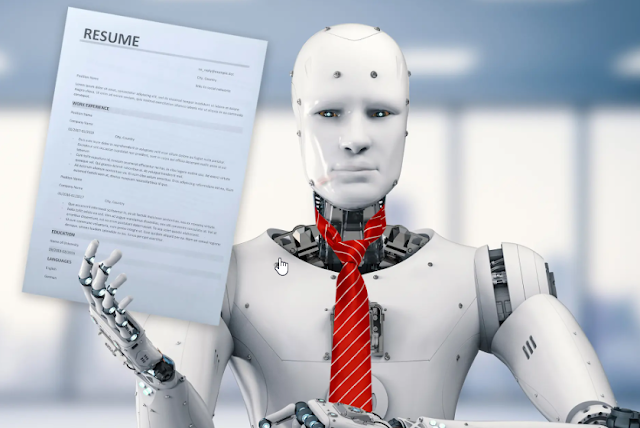- Get link
- X
- Other Apps
- Get link
- X
- Other Apps
ChatGPT Instills Concerns of Mass Layoffs, but Study Reveals Deep-Learning Boom in the 2010s Created Job Prospects.
While there is significant anticipation that ChatGPT and generative AI could lead to substantial job losses, recent economic data contradicts this notion. Despite concerns about rapid replacement during the previous major AI advancement, the data shows that it did not result in industry-wide job reductions. Even if ChatGPT and generative AI live up to a fraction of the hype, the likelihood of wide-scale job losses may not be as inevitable as feared. In a recent research paper, economists conducted a comprehensive analysis of the job market in several European countries from 2011 to 2019, a period when deep learning, an AI technique, emerged as a powerful automation tool for various tasks. Deep learning was initially expected to have a significant and swift impact on employment.
To investigate the actual outcomes, researchers from prominent institutions, including the European Central Bank, Spain's central bank, and the universities of Oxford and Pittsburgh, employed established methods to assess the vulnerability of professions to AI-driven automation. They compared workers' tasks with algorithm capabilities and cross-referenced this information with survey data on EU workers, examining job transitions across industries spanning agriculture to financial services.
The key finding revealed that industries with high potential for AI utilization did not experience job reductions. Surprisingly, occupations requiring higher skills and more susceptible to AI, such as white-collar office work involving data analysis, witnessed a roughly 5 percent increase in employment. This supports the notion that new technologies can enhance demand for skilled workers while replacing routine-based jobs. On the other hand, there was no significant impact on less skilled workers from software or AI adoption.
While concerns about technology displacing jobs are understandable, economic research paints a complex and varied picture. Many economists generally believe that automation can lead to overall job demand growth, as observed in recent studies. However, if one does not possess the advanced skills that benefit from automation, the arrival of new technology may pose challenges.
This research does not offer definitive predictions regarding the effects of ChatGPT or other generative AI technologies, as they might be too nascent to cause noticeable changes. It is also plausible that generative AI has distinct implications for employment compared to previous technologies. The authors of the study caution against extrapolating the findings into the future.
Undeniably, generative AI is already causing some disruptions. Stories abound of individuals and businesses impacted by the AI behind ChatGPT. Copywriters, for instance, are encountering career shifts as customers replace them with generative AI tools, while some publications experiment with AI-generated content. Notably, the German tabloid Bild cited AI as a factor behind planned job reductions.
However, it is essential to recognize that tools like ChatGPT are still imperfect collaborators, as they can fabricate information, reinforce biases, and exhibit other undesirable behavior. Moreover, it is worth noting that the emergence of deep learning in the 2010s prompted predictions from AI experts about the elimination of certain jobs, such as radiologists, which have yet to materialize.
- Get link
- X
- Other Apps

Comments
Post a Comment